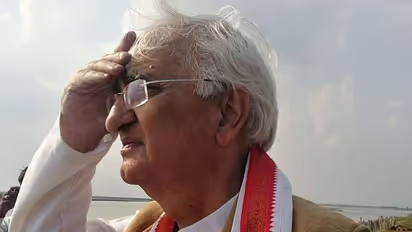Plea against Salman Khurshid's book dumped; HC says read something better if you feel offended

Synopsis
The court disagreed with the petitioner's contention that the right to freedom of speech under Article 19 is not absolute
The Delhi High Court on Thursday rejected the petition seeking a ban on publication, circulation, sale and purchase of the new book of former Law Minister Salman Khurshid's new book 'Sunrise Over Ayodhya: Nationhood in Our Times'. The petition filed by advocate Vineet Jindal had claimed that the Khurshid's book hurt the sentiments of Hindus. Citing the statement made by Khurshid in the book that reportedly compared Hindutva with ISIS and Boko Haram, the petition claimed that the contents of the book had the potential to breach public peace.
However, Justice Yashwant Verma rejected the petition stating that if the petitioner and others do not agree with the views expressed by the author, they should not read the book. The court disagreed with the petitioner's contention that the right to freedom of speech under Article 19 is not absolute. Rejecting the argument that reasonable restrictions must be put on this right to prevent the breach of peace, the court said that the onus was on the government to impose restrictions.
The petition had claimed that the contents of the book could endanger the security and harmony in the country and disrupt public order. During the hearing, the counsel for the petitioner cited how the author's own residence in Nainital had been vandalised over the contents of his book.
However, the court cannot do anything if people are feeling hurt, Justice Varma said, further suggesting that people could skip the chapter if they did not like the passage. The court further said that the petitioner had only brought before it an excerpt from the book and not sought the cancellation of the publisher's license. Rejecting the petition, the court said that people can choose not to read the book. If people feel that sentiments be hurt, they could read something else, the judge observed.
Also Read
UP Election 2022: Jewar airport and BJP's western Uttar Pradesh gameplan
7 NFHS takeaways: India's fertility rate dips, women's empowerment increasing